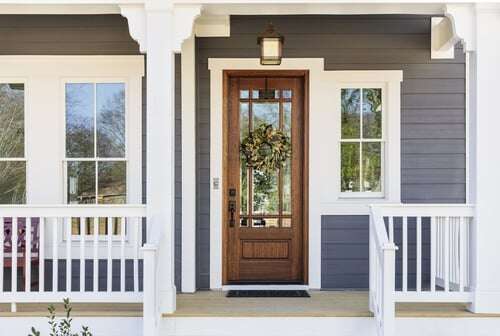 Started thinking about remodeling your home or maybe building a brand new home? Have you heard your friends complaining about how budgeting for construction is difficult, especially with all the surprising costs that turn up in a project?
Started thinking about remodeling your home or maybe building a brand new home? Have you heard your friends complaining about how budgeting for construction is difficult, especially with all the surprising costs that turn up in a project?
Before you start to wonder if home remodeling or building new construction is even right for you and your budget, check out the simple ways you can avoid those surprising costs that everyone talks [and fears] about.
Know What You Want
Would it amaze you to know that surprise costs come mostly from homeowners changing their minds about what they want in the midst of a build or remodel? While adding a few things here and there throughout the project is expected, a complete change isn’t. Letting your contractor know late in the game that you want to X instead of Y within the living room space can be costly as they may have already subcontracted the work out to someone else or purchased the material. Unlike many other jobs where not using someone’s services doesn’t hurt you, in the contracting business if it’s too late you have to pay them even if you don’t use them.
That being said, clearly knowing what you want when you go into contract negotiations will save you the money of changing your mind when it’s too late.
Note: When something gets added to a project that wasn’t originally stated with in the contract it’s labeled as either a discretionary or non-discretionary change order. Click here to find out the difference between the two.
Anticipating Extra Costs
Remodeling an old home? Make sure you keep in mind these potential costs that people rarely plan for.
Damage
Remodeling your home can reveal areas that need to be fixed ASAP before anything else can continue. For example, knocking down a wall or taking out the carpet can reveal water damage. Other things that can be revealed within an old home are:
- Pests
- Mold
- Faulty wiring
- Unfinished work
Experts say that adding an extra 10-15% into your budget for these types of fixes can dramatically help keep your surprise costs down.
Bringing Your Home Up to Code
When remodeling a home, it’s almost guaranteed that you’ll have to update more than you planned on because it no longer meets code requirements. Your contractor is legally required to bring everything up to code before continuing on with the remodel. To help keep these code updates from surprising you during remodel, talk with your contractor about possible code changes at the beginning of the process before you sign a contract.
Additional Cost to Think About
Other costs to think about when it comes to remodeling are:
- Remodeling the whole house? You'll probably have to live somewhere else during the project. Add in the cost of relocation for the duration of the remodel.
- Remodeling the kitchen? Your ability to cook meals will go away for little bit, so make sure you anticipate having to spend more money on eating out than you normally do.
- Remodeling the bathroom? If you have more than one bathroom then you might be okay, if not then make sure you make plans to either borrow a friends bathroom or purchase a portable trailer with a toilet and shower for the remodel.
Actually Read the Contract
While this may seem self-explanatory, many people only skim the contract and then sign on the dotted line. To give you ample time to read it over, ask your contractor to send you an email with the contract attached. This lets you take the time to read it over without the pressure of them standing in front of you waiting for you to sign.
It’s also good to have the list of items you talked about in front of you when you read through the contract to double check that they are 1) actually there 2) the way you want them. You can also look up construction or remodeling contract language to better understand the parts you’ll see throughout and what to specially look for.
While reading the contract feel free to:
- Highlight or mark places in the contract you don’t understand
- Make notes in places where you’re unsure if what is written means what you think it means
- Check off that all the items you previously talked about are written into the contract
- Check to see that the materials listed are high-quality materials
Don’t be afraid to ask that your contractor amend the contract if something is incorrect, you think something is missing, or you want to add something that wasn’t previously mentioned. It can take sending it back-and-forth a few times before you officially sign on the dotted line.
Nervous that your contractor may be a little shady? Click here to see the signs to look out for when dealing with shady contractors.
Check-In Appointments
Once you’ve signed the contract pick a day of the week to have a weekly check-in. This allows you to be able to see the process happening each week (or every two if preferred) and allows your contractor to know when you’ll be checking in. That way you’ll be able to see what is continuing on schedule and what has been delayed.
Communication is always key to helping your home remodeling project or new construction go smoothly. For more information about how your project can stay on time and budget, download our Pre-Construction Checklist below.








